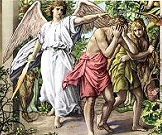Make your gift today!
Help keep Catholics around the world educated and informed.
Already donated? Log in to stop seeing these donation pop-ups.
Catholic Activity: Why Ashes?

The significance of ashes that are imposed on our foreheads on Ash Wednesday.
DIRECTIONS
Ash Wednesday opens up this season of penitence.
"Remember, man, you are dust, and unto dust you shall return."
So says the priest as he makes the sign of cross with ashes on our foreheads. The ashes are made by burning the previous year's blessed palms. This is a vivid reminder of our mortal nature. We are bodies fashioned from dust. "Then the Lord God formed man out of the dust of the ground and breathed into his nostrils the breath of life, and man became a living being" (Gen 2:7). Our bodies were made from nothing, and will return to nothing when we die. Ashes are a symbol of this passing world, a reminder of our death.
The imposition of ashes is also a symbol of penance and sorrow for our sins. The practice of sprinkling ashes on one's head as a sign of penance was customary even in the Old Testament—in the Book of Esther, Mordecai put on sackcloth and ashes (Est 4:1); Job sat in sackcloth and ashes to repent (Job 42:6); all of Ninevah put on sackcloth and ashes to repent after Jonah's preaching (Jon 3:5-6). In early Christian centuries the imposition of ashes was only used for public sinners, but around the year 1000 A.D. popes and all faithful started to receive the ashes as a sincere and external token that we are all poor sinners.
Ashes remind us of the curse from Genesis. After Adam and Eve committed the Original Sin, God expelled them from the Garden of Eden with these words:
Cursed be the ground because of you; in toil shall you eat of it all the days of your life; thorns and thistles shall it bring forth to you, and you shall eat the plants in the field. In the sweat of your brow you shall eat bread, till you return to the ground, since out of it you were taken; for dust you are and unto dust you shall return (Gen 3:17-19).
The Church repeats these words as the cross is traced on our foreheads "Remember, man, you are dust and to dust you shall return." Thus this opens a theme that is echoed throughout Lent and then decidedly pronounced during the Easter Vigil. In the Exsultet, the Church rejoices in this Original Sin, because it brought the Redemption: "O happy fault, O necessary sin of Adam, which gained for us so great a Redeemer!"
The liturgy of Ash Wednesday gives us guidelines for our 40 day journey. We pray for blessing upon our endeavors in the opening prayer at Mass:
"Lord, protect us in our struggle against evil. As we begin the discipline of Lent, make this season holy by our self-denial."
The Old Testament reading is from the Prophet Joel 2:18. Here the message is very clear: do penance, but avoid an outward show, "Rend your hearts and not your garments." Our penance should not be mere hypocrisy. It is an interior change that is more important.
Activity Source: Original Text (JGM) by Jennifer Gregory Miller, © Copyright 2003-2025 by Jennifer Gregory Miller






